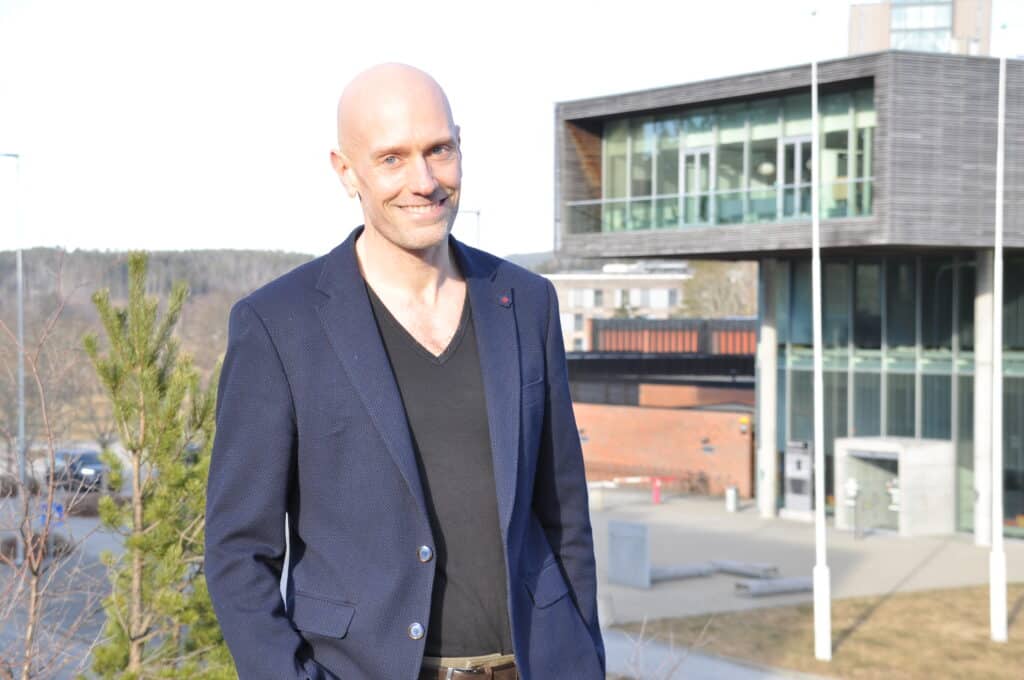In his new book “AI for the Sustainable Development Goals” Henrik Skaug Sætra describes how AI can contribute to achieving the UN’s Sustainable Development Goals by 2030. But just as important: he argues that AI may also turn into sustainability’s – and society’s – worst enemy, if not handled right.
By Anja Lillerud, 29 March 2022

The world has gathered around the United Nation’s 17 Sustainable Development Goals (SDGs), aiming to achieve them by 2030.
The goals deal with issues such as justice, economic growth, climate, health, food and water, work and education, consumption and production, equality, clean energy, innovation, no poverty and zero hunger.
As a topic obtaining great interest around the world and having an increasing importance in most areas in the society, artificial intelligence (AI) is now often considered an important factor in accomplishing these goals.
But:
– AI is only a part of the solution, emphasizes author and professor Henrik Skaug Sætra.
He is an associate professor at the Faculty of Computer Science, Engineering and Economics at Østfold University College (ØUC), but on 1 April 2022, Sætra enters the position as leader for ØUC’s focus area “The digital society”.
In February, his book “AI for the Sustainable Development Goals” presenting both sides of how AI can and cannot contribute to fulfilling the SDGs, was published.
– Changes are needed
– I have tried to see the whole picture. Both advantages and disadvantages with the development and use of AI and which threats and challenges emerge with this technology, explains Sætra.
For example, AI algorithms can be trained and taught to help us develop systems and infrastructure to reduce greenhouse gas emissions. But that requires energy; hence the use of AI also causes greenhouse gas emissions.
So, how do we know whether AI gains the sustainability or not?
Sætra gives some answers in his book by presenting the obvious consequences and the positive potentials for each of the 17 SDGs, aiming to make his readers understand why the solution to achieve the UN’s sustainability development goals cannot be AI alone.
– We need to change the industry’s infrastructure. Today big data is disproportionately accessible to a few major stakeholders, such as Google, Apple, Facebook, Amazon, and Microsoft. That conflicts with several of the SDGs saying the data should be universal, available, and not too expensive so even poor countries are able to develop their own technology and use this in a beneficial manner, Sætra says.

– Must be used right
Working on the book and as an employee at ØUC, the author and professor has concluded that the world is unlikely to have fully achieved the SDGs by 2030. The latest UN climate repost published in March 2022, shows that if we continue as we do today, we will not even be close to reaching them.
– Together with political determination and power of action, resources and funds, sensible use of AI can be a crucial part of the solution. If the technology is not being used right, it may instead complicate the transformation required. I am not convinced the world society will be able to make all the changes described in UN’s 17 sustainable development goals because they are so ambitious, says Sætra.
He finds it important and useful to highlight such complex and elaborate field of expertise through a conference such as AI+.
– At this conference you gather politicians, professionals, investors, stakeholders, and others who are interested in the topic and users of the technology. The politicians representing the citizens need to know how to use and regulate AI, the developers need to know how to create useful and reliable technology, and those who implement the technology in their business need to know what questions to ask to implement and use the right type of AI, says Henrik Skaug Sætra.
NOTE: Henrik Skaug Sætra is one of the speakers at AI+ 2022.
